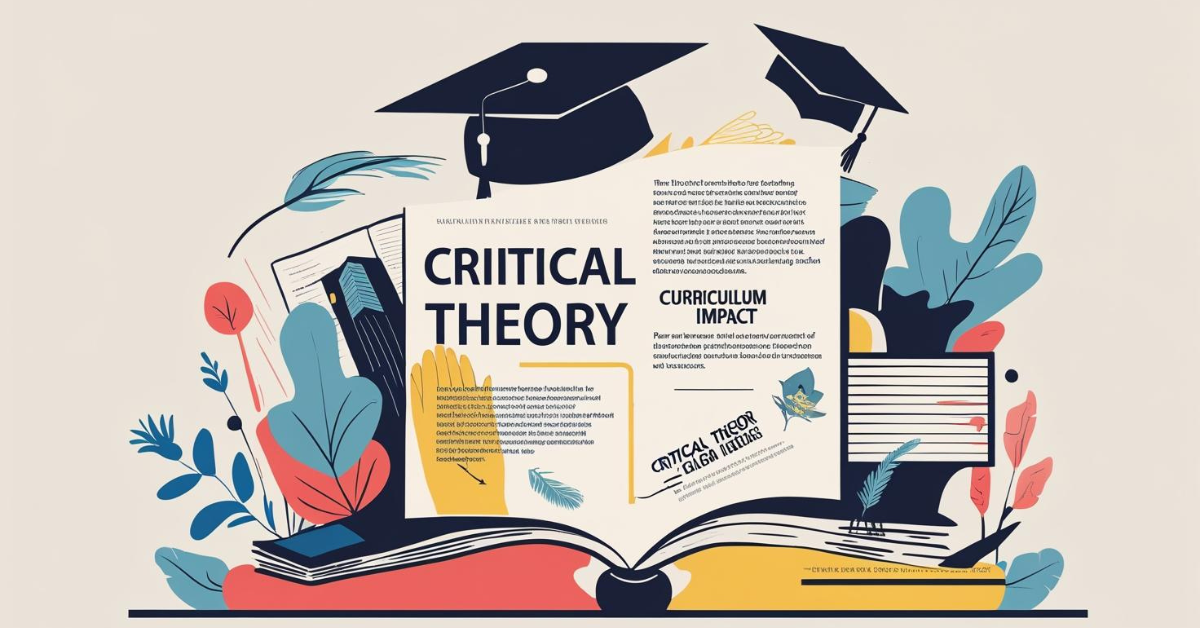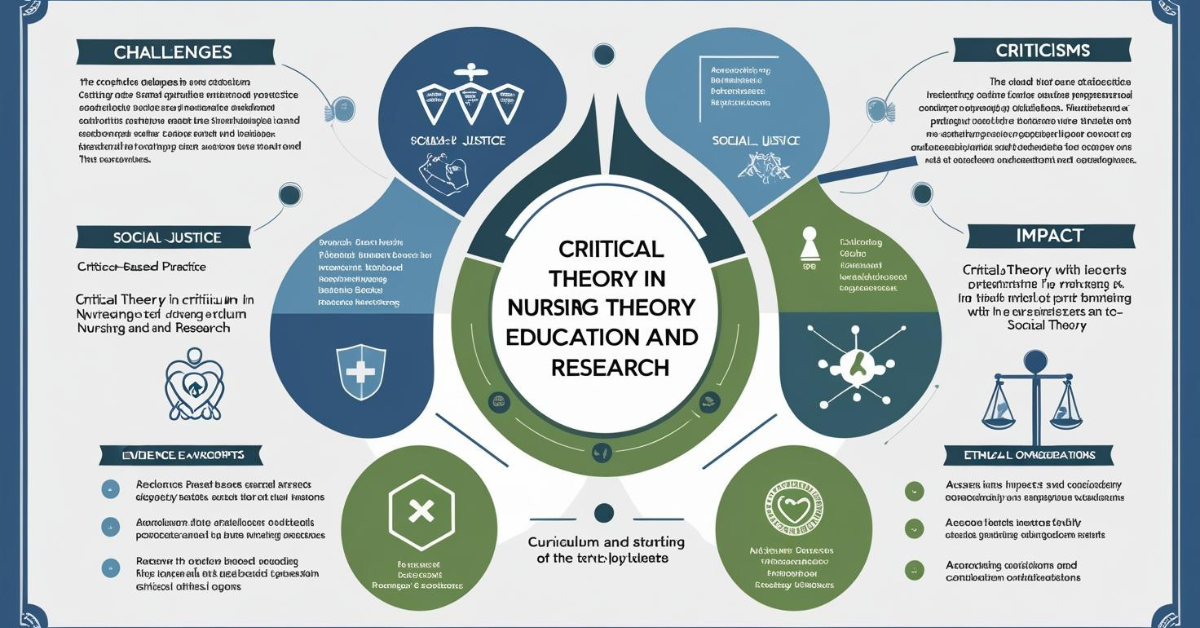The Critical Theory in Nursing Education and Research Challenges Criticisms and Curriculum Impact. Critical theory in nursing education and research offers a perspective for examining power structures, social inequalities, and their impact on healthcare. While it provides valuable tools for challenging the status quo and promoting social justice, it has also been criticized for its complexity and elitist potential. Integrating critical theory into nursing curricula can strengthen students’ critical thinking, promote reflective action, and encourage them to promote positive changes in the healthcare system.
What Is Critical Theory in Nursing Education and Research Challenges Criticisms and Curriculum Impact
The Major Criticisms of Critical Theory Approaches
There are several criticisms that have been voiced against critical approaches. Morrison (1995a) suggests that there is an artificial separation between Habermas’s three interests they are drawn far more sharply (Hesse, 1982; Bernstein, 1976; 1983:33).
Problem of Artificial Separation
For example, one has to bring hermeneutic knowledge to bear on positivist science and vice versa in order to make meaning of each other and in order to judge their own status.
Questioning the Emancipation Promise
Further, the link between ideology critique and emancipation is neither clear nor proven, nor a logical necessity (Morrison, 1995a:67)—whether a person or society can become emancipated simply by the exercise of ideology critique or action research is an empirical rather than a logical matter (Morrison, 1995a; Wardekker and Miedama, 1997).
Indeed one can become emancipated by means other than ideology critique; emancipated societies do not necessarily demonstrate or require an aware ness of ideology critique. Moreover, it could be argued that the rationalistic appeal of ideology critique actually obstructs action designed to bring about emancipation. Roderick (1986:65), for example, questions whether the espousal of ideology critique is itself as ideological as the approaches that it proscribes.
Relativism Problem
Habermas, in his allegiance to the view of the social construction of knowledge through ‘interests’, is inviting the charge of relativism. Whilst the claim to there being three forms of knowledge has the epistemological attraction of simplicity, one has to question this very simplicity (e.g. Keat, 1981:67); there are a multitude of interests and ways of understanding the world and it is simply artificial to reduce these to three.
Indeed it is unclear whether Habermas, in his three knowledge-constitutive interests, is dealing with a conceptual model, a political analysis, a set of generalities, a set of trans-historical principles, a set of temporally specific observations, or a set of loosely defined slogans (Morrison, 1995a:71) that survive only by dint of their ambiguity (Kolakowsi, 1978).
Lakomski (1999) questions the acceptability of the consensus theory of truth on which Habermas’s work is premised (pp. 179–82); she argues that Habermas’s work is silent on social change, and is little more than speculation, a view echoed by Fendler’s (1999) criticism of critical theory as inadequately problematizing subjectivity and a historicity.
Political Agenda Dilemma
More fundamental to a critique of this approach is the view that critical theory has a deliberate political agenda, and that the task of the researcher is not to be an ideologue or to have an agenda, but to be dispassionate, disinterested and objective (Morrison, 1995a). Of course, critical theorists would argue that the call for researchers to be ideologically neutral is itself ideologically saturated with laissez-faire values which allow the status quo to be reproduced, i.e. that the call for researchers to be neutral and disinterested is just as value laden as is the call for them to intrude their own perspectives.
The rights of the researcher to move beyond disinterestedness are clearly contentious, though the safeguard here is that the researcher’s is only one voice in the community of scholars (Kemmis, 1982).
Critical theorists as researchers have been hoisted by their own petard, for if they are to become more than merely negative Jeremiahs and skeptics, berating a particular social order that is dominated by scientism and instrumental rationality (Eagleton, 1991; Wardekker and Miedama, 1997), then they have to generate a positive agenda, but in so doing they are violating the traditional objectivity of researchers. Because their focus is on an ideological agenda, they themselves cannot avoid acting ideologically (Morrison, 1995a).
Limits of Empowerment
Claims have been made for the power of action research to empower participants as re searchers (e.g. Carr and Kemmis, 1986; Grundy, 1987). This might be over-optimistic in a world in which power is often through statute; the reality of political power seldom extends to teachers. That teachers might be able to exercise some power in schools but that this has little effect on the workings of society at large was caught in Bernstein’s famous comment (1970) that ‘education cannot compensate for society.
Giving action researchers a small degree of power (to research their own situations) has little effect on the real locus of power and decision-making, which often lies outside the control of action researchers. Is action research genuinely and full-bloodedly empowering and emancipatory? Where is the evidence?
Critical Theory’s Impact on Curriculum Research
In terms of a blog post on research methods, the tenets of critical theory suggest their own substantive fields of inquiry and their own methods (e.g. ideology critique and action research). Beyond that the contribution to this text on empirical research methods is perhaps limited by the fact that the agenda of critical theory is highly particularistic, prescriptive and, as has been seen, problematical. Though it is an influential paradigm, it is influential in certain fields rather than in others. For example, its impact on curriculum research has been far-reaching.
Challenging the Tyler Rationale
It has been argued for many years that the most satisfactory account of the curriculum is given by a modernist, positivist reading of the development of education and society. This has its curricular expression in Tyler’s (1949) famous and influential rationale for the curriculum in terms of four questions:
- What educational purposes should the school seeks to attain?
- What educational experiences can be provided that is likely to attain these purposes?
- How can these educational experiences be effectively organized?
- How can we determine whether these purposes are being attained?
Underlying this rationale is a view that the curriculum is controlled (and controllable), ordered, pre-determined, uniform, predictable and largely behaviorist in outcome—all elements of the positivist mentality that critical theory eschews. Tyler’s rationale resonates sympathetically with a modernist, scientific, managerialist mentality of society and education that regards ideology and power as unproblematic, indeed it claims the putative political neutrality and objectivity of positivism (Doll, 1993); it ignores the advances in psychology and psych pedagogy made by constructivism. However, this view has been criticized for precisely these sympathies.
Doll (1993) argues that it represents a closed system of planning and practice that sits uncomfortably with the notion of education as an opening process and with the view of postmodern society as open and diverse, multidimensional, fluid and with power less monolithic and more problematical. This view takes seriously the impact of chaos and complexity theory and derives from them some important features for contemporary curricula. These are incorporated into a view of curricula as being rich, relational, recursive and rigorous (Doll, 1993) with an emphasis on emergence, process epistemology and constructivist psychology.
Not all knowledge can be included in the curriculum; the curriculum is a selection of what is deemed to be worthwhile knowledge. The justification for that selection reveals the ideologies and power in decision-making in society and through the curriculum. Curriculum is an ideological selection from a range of possible knowledge. This resonates with a principle from Habermas (1972) that knowledge and its selection are neither neutral nor innocent. Ideologies can be treated unpejoratively as sets of beliefs or, more sharply, as sets of beliefs emanating from powerful groups in society, designed to protect the interests of the dominant.
If curricula are value-based then why is it that some values hold more sway than others? The link between values and power is strong. This theme asks not only what knowledge is important but whose knowledge is important in curricula, what and whose interests such knowledge serves, and how the curriculum and pedagogy serve (or do not serve) differing interests. Knowledge is not neutral (as was the tacit view in modernist curricula). The curriculum is ideologically contestable terrain.
The study of the sociology of knowledge indicates how the powerful might retain their power through curricula and how knowledge and power are legitimated in curricula. The study of the sociology of knowledge suggests that the curriculum should be both subject to ideology critique and itself promote ideology critique in students. Researches agenda for critical theorists, then is how the curriculum perpetuates the societal status quo and how can it (and should it) promote equality in society.
Three Interests in Curriculum
The notion of ideology critique engages the early writings of Habermas (1972), in particular his theory of three knowledge-constitutive interests. His technical interest (in control and predictability) resonates with Tyler’s model of the curriculum and reveals itself in technicity, instrumentalist and scientist views of curricula that are to be ‘delivered’ to passive recipients— the curriculum is simply another commodity in a consumer society in which differential cultural capital is inevitable.
Habermas’s ‘hermeneutic’ interest (in understanding others’ perspectives and views) resonates with a process view of the curriculum. His emancipatory interest (in promoting social emancipation, equality, democ racy, freedoms and individual and collective empowerment) requires an exposure of the ideo logical interests at work in curricula in order that teachers and students can take control of their own lives for the collective, egalitarian good.
Habermas’s emancipatory interest denotes an inescapably political reading of the curriculum and the purposes of education—the movement away from authoritarianism and elitism and towards social democracy. Habermas’s work underpins and informs much contemporary and recent curriculum theory (e.g. Grundy, 1987; Apple, 1990; UNESCO, 1996) and is a useful heuristic device for understanding the motives behind the heavy prescription of curriculum content in, for ex ample, the UK, New Zealand, the USA and France.
Contemporary Applications
For instance, one can argue that the National Curriculum of England and Wales is heavy on the technical and hermeneutic interests but very light on the emancipatory interest (Morrison, 1995a), and that this (either deliberately or in its effects) supports—if not contributes to—the reproduction of social inequality. As Bernstein (1971) argues: ‘how a society selects, classifies, distributes, transmits and evaluates the educational knowledge it considers to be public, reflects both the distribution of power and the principles of social control’ (p. 47).
Further, one can argue that the move towards modular and competence-based curricula reflects the commodification, measurability and trivialization of curricula, the technicity control of curricula, a move toward the behaviorism of positivism and a move away from the transformatory nature of education, a silencing of critique, and the imposition of a narrow ide ology of instrumental utility on the curriculum. Several writers on contemporary curriculum theory (e.g. McLaren, 1995; Leistna, Woodrum and Sherblom, 1996) argue that power is a central, defining concept in matters of the curriculum.
Here considerable importance is accorded to the political agenda of the curriculum, and the empowerment of individuals and societies is an inescapable consideration in the curriculum. One means of developing student and societal empowerment finds its expression in Habermas’s (1972) emancipatory interest and critical pedagogy.
Critical Pedagogy: Promise and Problems
In the field of critical pedagogy the argument is advanced that educators must work with, and on, the lived experience that students bring to the pedagogical encounter rather than imposing a dominator curriculum that reproduces social inequality. In this enterprise teachers are to transform the experience of domination in students and empower them to become ‘emancipated’ in a full democracy.
Students’ everyday experiences of oppression, of being ‘silenced’, of having their cultures and ‘voices’ excluded from curricula and decision-making are to be interrogated for the ideological messages that are contained in such acts. Raising awareness of such inequalities is an important step to overcoming them. Teachers and students together move forward in the progress towards ‘individual autonomy within a just society’ (Masschelein, 1991:97).
In place of centrally prescribed and culturally biased curricula that students simply receive, critical pedagogy regards the curriculum as a form of cultural politics in which participants in (rather than recipients of) curricula question the cultural and dominator messages contained in curricula and replace them with a ‘language of possibility’ and empowering, often community-related curricula. In this way curricula serve the ‘socially critical’ rather than the culturally and ideologically passive school.
One can discern a Utopian and generalized tenor in some of this work, and applying critical theory to education can be criticized for its limited comments on practice. Indeed Miedama and Wardekker (1999:68) go so far as to suggest that critical pedagogy has had its day, and that it was a stillborn child and that critical theory is a philosophy of science without a science (p. 75)! Nevertheless it is an important field for it recognizes and makes much of the fact that curricula and pedagogy are problematical and political.
Read More:
https://nurseseducator.com/didactic-and-dialectic-teaching-rationale-for-team-based-learning/
https://nurseseducator.com/high-fidelity-simulation-use-in-nursing-education/
First NCLEX Exam Center In Pakistan From Lahore (Mall of Lahore) to the Global Nursing
Categories of Journals: W, X, Y and Z Category Journal In Nursing Education
AI in Healthcare Content Creation: A Double-Edged Sword and Scary
Social Links:
https://www.facebook.com/nurseseducator/
https://www.instagram.com/nurseseducator/
https://www.pinterest.com/NursesEducator/
https://www.linkedin.com/in/nurseseducator/
https://www.researchgate.net/profile/Afza-Lal-Din
https://scholar.google.com/citations?hl=en&user=F0XY9vQAAAAJ


